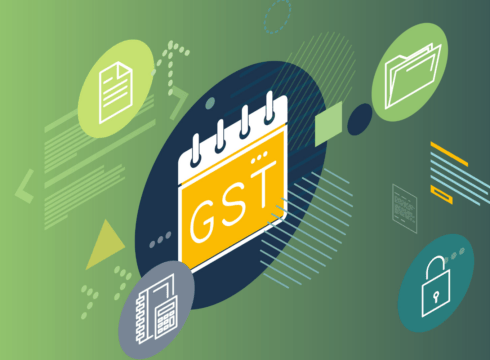There is a special provision under Section 171 of the CGST Act, 2017 that prevents profiteering by suppliers by not passing on the benefits of rate reductions and credit availability to their customers
The lack of guidelines has made it difficult for the industry to comply with the anti-profiteering provision
The GOI's Chief Economic Advisor had warned against this provision, stating that the provision was a mistake and that the discretion it provided could lead to harassment in the long run
Inc42 Daily Brief
Stay Ahead With Daily News & Analysis on India’s Tech & Startup Economy
The GST law has a unique provision to prevent profiteering by suppliers by not passing on the benefits of rate reductions and credit availability to their customers.
Section 171 of the Central Goods and Services Tax Act, 2017 (‘CGST Act’) includes this anti-profiteering provision under the GST regime. The provision requires that any reduction in tax rates or benefits from input tax credits be passed on to the recipient in the form of a proportionate reduction in prices. At the outset, it should be noted that the constitutional validity of this provision is pending before the High Court of Delhi, so no comment on this aspect or the methodologies used by the authorities is being made.
Anti-Profiteering Provision
The anti-profiteering measure was deemed necessary due to the possibility of higher inflation and rising prices, as well as the fact that it would be inappropriate for businesses to benefit from changes in the tax regime. Furthermore, the Comptroller and Auditor General of India (CAG) stated in its June 2010 report on the Implementation of Value Added Tax in India that the introduction of VAT did not reduce the cost of goods and that dealers enriched themselves at the expense of the common man.
This led to the introduction of the anti-profiteering measure under the GST regime, with the authority’s expected tenure of two years now increased to five. The authority, as well as Section 171 of the CGST Act, were intended to be temporary provisions. Both, however, appear to be a permanent feature at this point. The proposed merger of the Anti-Profiteering Authority and the Competition Commission of India is a sign that this provision will be made permanent. Some states have also advocated for the same in GST Council meetings.
Lack Of Regulations Makes Implementation Difficult
The industry has found it difficult to comply with the anti-profiteering provision. The provision is extremely sensitive because it affects the prices of goods and services. The lack of guidelines has resulted in several disputes due to different methodologies used by companies and the regulator. For instance, the Directorate General of Anti-Profiteering (‘DGAP’), the investigating authority, ignored the fluctuations in the prices of raw materials, fuel, and labour in the computation of profiteering.
The GST Council meetings had discussed the potential issues with implementing this provision. The GOI’s Chief Economic Advisor had warned against the dangers of this provision, saying that the anti-profiteering provision was a mistake and that the discretion it provided could lead to harassment in the long run.
Ideally, this provision should be phased out after 5 years of GST. I believe that GST’s transition period is over. For subsequent rate changes within the GST regime, the competitive forces will broadly ensure that rate cuts are passed on to the consumers. Even in Australia, the anti-profiteering provision was only temporary and applied only during the transition period.
Detailed Guidelines Are Needed
However, if the government does intend to make this provision permanent, detailed guidelines should be established. This will help companies comply with the provision and avoid disputes. The provision has an impact on the prices of goods and services, and these disputes are even more sensitive than tax disputes. An anti-profiteering dispute can have a significant impact on a company’s bottom line. As a result, detailed guidelines will go a long way in bringing certainty and ensuring compliance with this provision.
Furthermore, there are no provisions for appealing orders issued by the National Anti-Profiteering Authority (NAA). This is problematic, especially given that the NAA is made up entirely of technical members and lacks judicial members to better appreciate legal arguments. The only recourse available to a person aggrieved by an order passed by the NAA is to file a writ petition under Article 226 of the Constitution of India. Given the nature of Article 226 jurisdiction, such an argument is indeed unfavourable, as the disputes being adjudicated involve a complex set of facts. As a result, I believe that having another fact find authority at the appellate level is preferable.
{{#name}}{{name}}{{/name}}{{^name}}-{{/name}}
{{#description}}{{description}}...{{/description}}{{^description}}-{{/description}}
Note: We at Inc42 take our ethics very seriously. More information about it can be found here.


